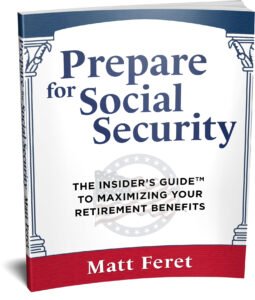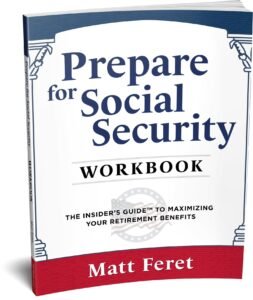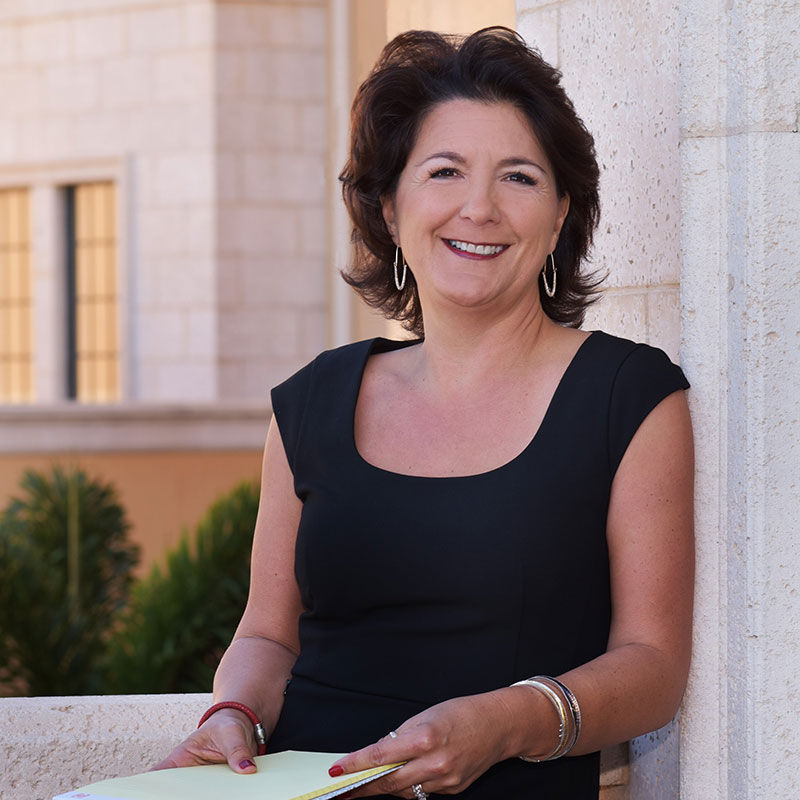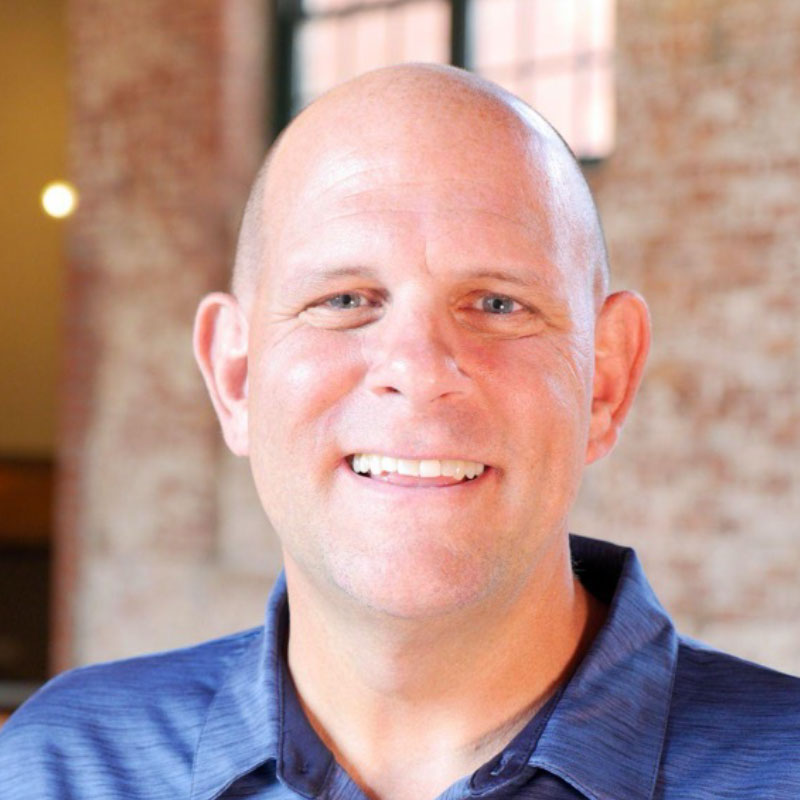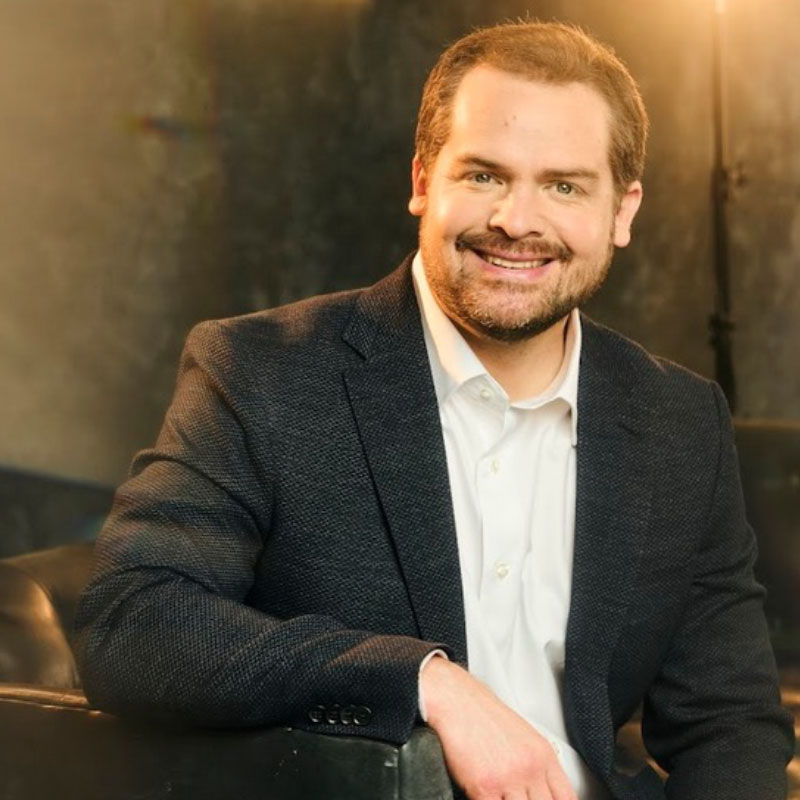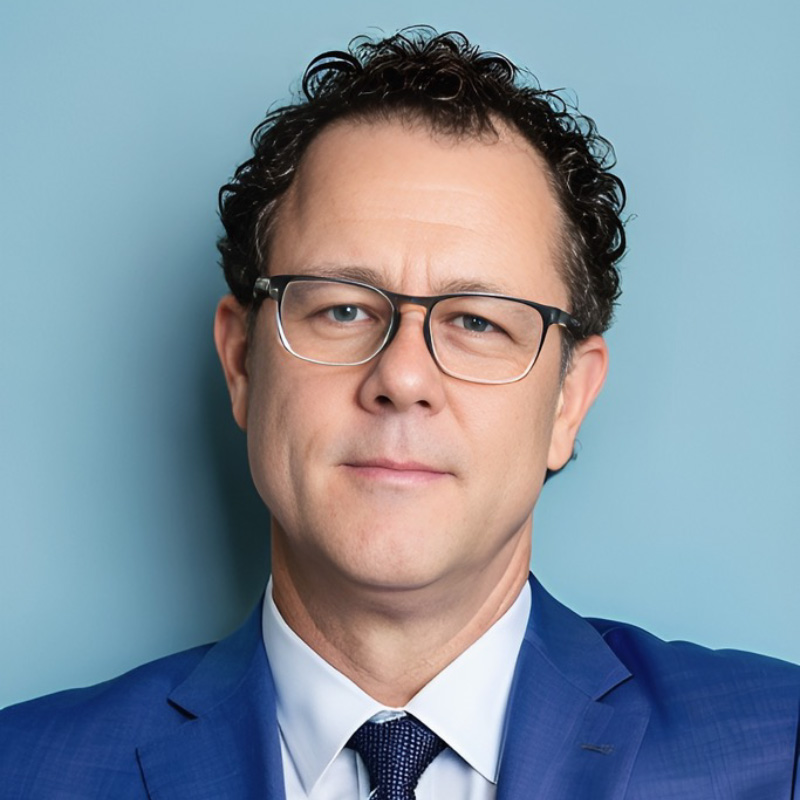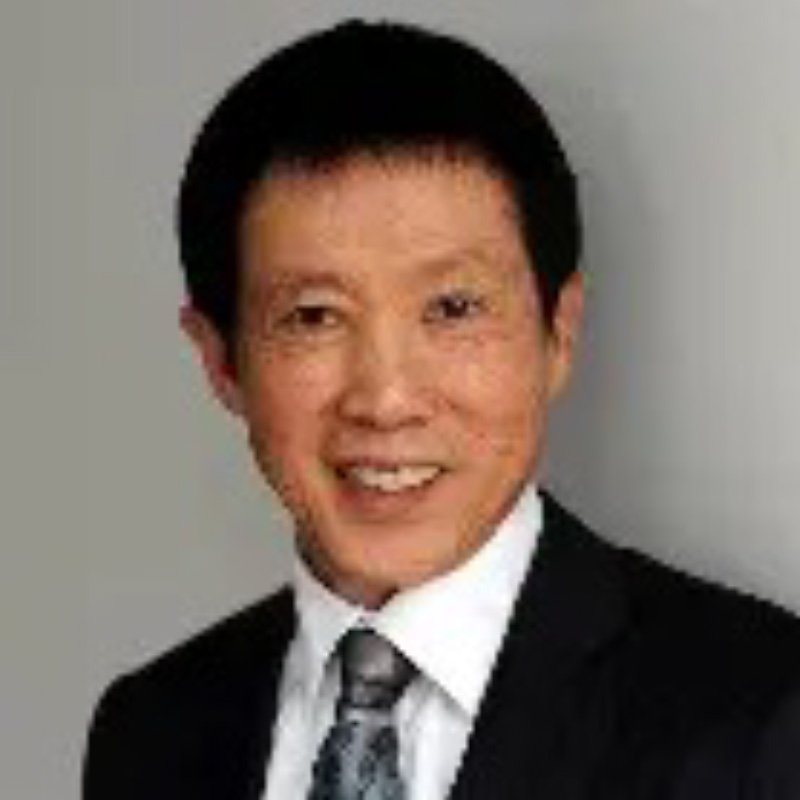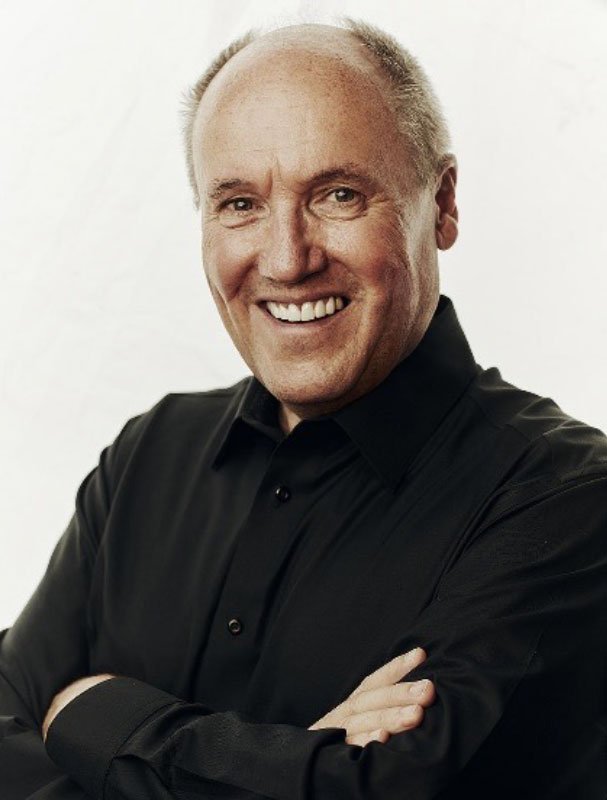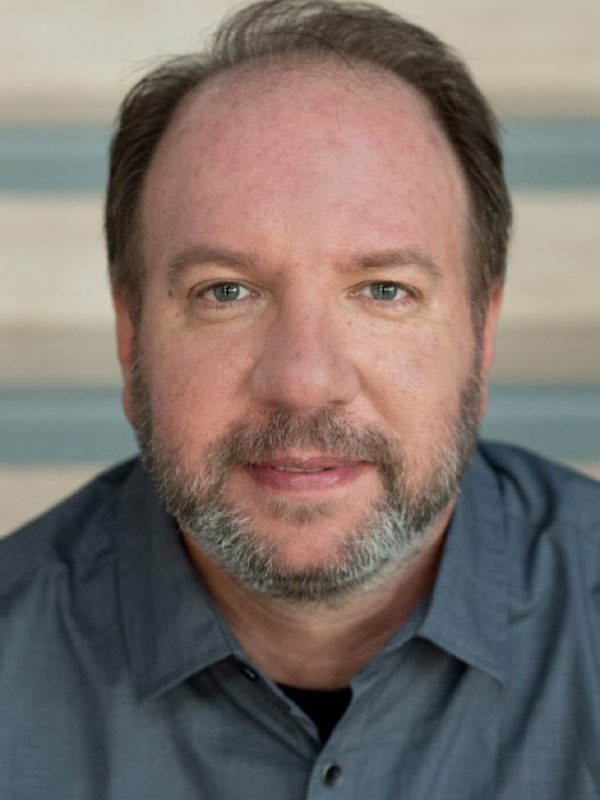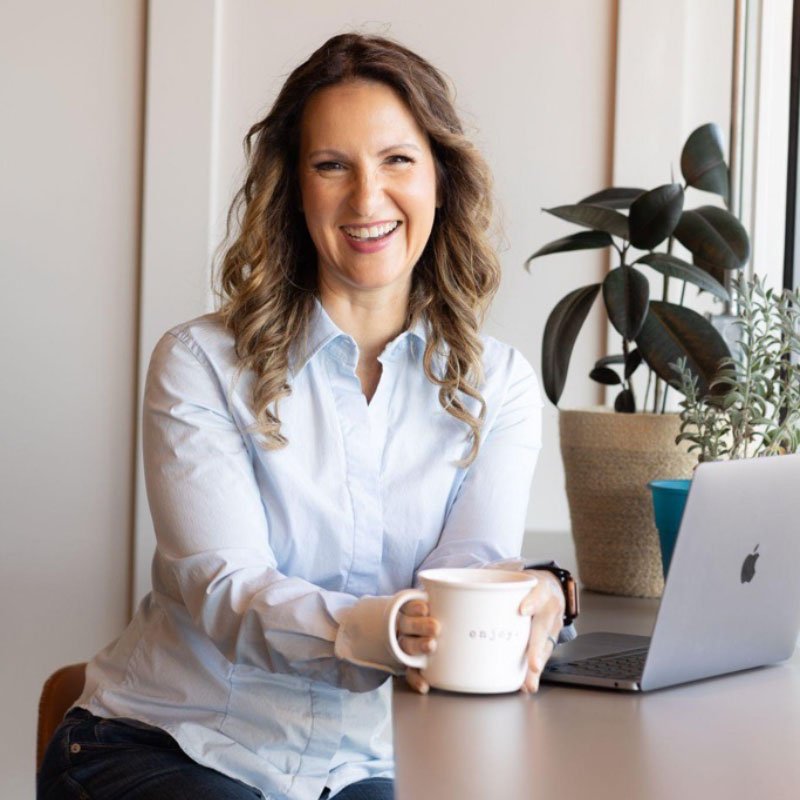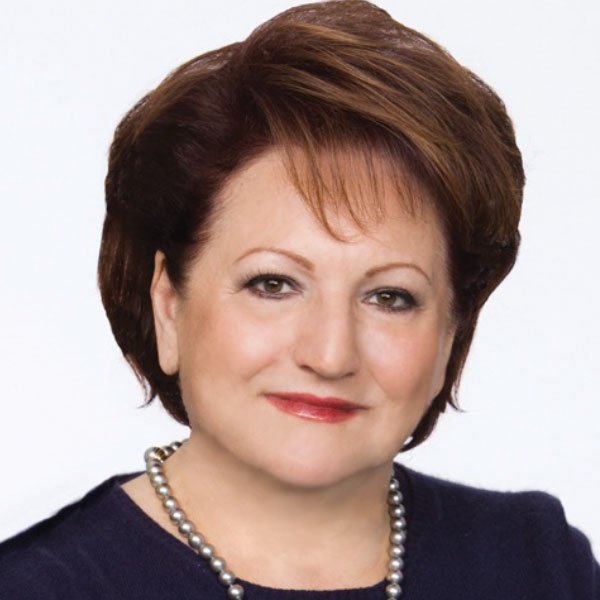#004
Share This:
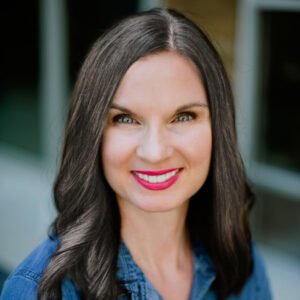
“I can count at least 10 New York Times bestselling authors who have come to me and said, "I never made any money."
— Honorée Corder
Honorée Corder is a bestselling author and executive business coach. She combines her business acumen and twelve years of self-publishing experience to provide structure, strategy, and accountability to individuals who want to elevate their platform and create multiple streams of income from publishing their own books. Honorée’s coaching and books provide real-world, time-tested strategies. She shares step-by-step advice in a straight-forward, no-nonsense fashion for use today, to get desired results as soon as tomorrow.
This episode will give you an insider’s view into the art of self-publishing your book, how, why and when to use a strategic book coach, how to identify a legitimate book coach, monetizing your book, author earning potential of traditional vs. self-publishing, why the best time to start writing is NOW, royalties vs. advances, the creative writing process, the business side of self-publishing, plus a whole lot more. You can find her on Instagram, on Twitter, Facebook and www.honoreecorder.com. You can email her at honoree@honoreecorder.com Enjoy!
Listen to the episode on Apple Podcasts, Spotify, Deezer, Podcast Addict, Stitcher, Google Podcasts, Amazon Music, Alexa Flash Briefing, iHeart, Acast or on your favorite podcast platform. You can watch the interview on YouTube here.
Brought to you by Prepare for Medicare – The Insider’s Guide book series. Sign up for the Prepare for Medicare Newsletter, an exclusive subscription-only newsletter that delivers the inside scoop to help you stay up-to-date with your Medicare insurance coverage, highlight Medicare news you can use, and reminders for important dates throughout the year. When you sign up, you’ll immediately gain access to seven FREE Medicare checklists.
Quotes:
“If you think that you have a book that would benefit the world, don't get in your own way and wait a year or 10 years to actually put pen to paper and write the book. Start working through the process.”
— Honorée Corder
“There's a lot that goes in to turning your words and your expertise and your education, your experience all in one form in a 50,000 to 100,000-word document, and then putting the polish on it. You want someone who understands the arc of a book to go and make sure that what you think you're explaining to someone is what you're actually explaining to them, right, because we make multiple leaps in our heads as experts from A to F like, oh, well, you do this and then this happens. And it's like wait a minute. Where was B?”
— Honorée Corder
“You can still write and publish your book in a weekend. You can still upload a Word document and create a cover yourself. It's just not going to be the workhorse that you want it to be. It's not going to be the quality book that you want it to be. Ultimately, it's not going to work as hard for you.”
— Honorée Corder
“What (traditional) publishers want to see is… Is your milkshake going to bring the sales to the yard? Are you going to be able to sell books? What they will do is give you a chunk of money. It could be as low as, I hope you're sitting down, $10,000, $30,000, which you then have to earn out at your 10%, 12%... you have to earn back that money. That's not free money.”
— Honorée Corder
“You don't want your book to be a best-selling book. You want it to be a best-earning book.”
— Honorée Corder
“There are companies that will produce a book for you, and you will pay for that, and then they will go through the mechanics of publishing for you, and then send you royalties, and for that, they will also keep a piece of the action. So, your royalties are a little higher than traditional publishing, but not as high as if you form your own company and retain all of those rights yourself. I don't believe that there's anyone just like me who does exactly what I do.”
— Honorée Corder
#004
Selected Link from the Episode:
Full Show Transcript:
#4: Self-publishing Strategic Book Coach, Honoree Corder with Matt Feret
00:00 / 44:29
LEGAL CONDITIONS:
Matt Feret/MF Media, LLC owns the copyright all content and transcripts of The Matt Feret Show, and mattferet.com with all rights reserved, as well as right of publicity. All rights reserved.
No part of this publication may be reproduced or transmitted in any form or by any means, electronic or mechanical, including photocopying, recording, or by any information storage and retrieval system without written permission of the publisher, except for the inclusion of brief quotations in a review. You are welcome to share the below transcript (up to 500 words) in media articles, on your personal website, in a non-commercial article or blog post, and/or on a personal social media account for non-commercial purposes, if you include attribution to “The Matt Feret Show” and link back to the mattferet.com website.
WHAT IS NOT ALLOWED: No one may copy any portion of the content or use Matt Feret’s name, image or likeness for any commercial purpose or use, including without limitation inclusion in any books, e-books, book summaries or synopses, or on a commercial website or social media site (e.g., Facebook, Twitter, Instagram, etc.) that offers or promotes your or another’s products or services.
DISCLAIMER: This publication is in no way sponsored, associated, authorized, approved, endorsed nor, in any way affiliated with any government agency, company, trademarked names, or other marks. Any such mention is for purpose of reference only. Any advice, generalized statistics, or opinions expressed are strictly those of the host and the guest. This publication, The Matt Feret Show nor the mattferet.com website is meant to replace the sage advice of healthcare, insurance, financial planning, accounting, or legal professionals. You are responsible for your financial decisions. It is your sole responsibility to independently evaluate the accuracy, correctness or completeness of the content, services, and products of, and associated with this publication. The thoughts and opinions expressed in this publication are those of the host and guest(s) only and are not the thoughts and opinions of any current or former employer of the host and guest(s) nor is this publication made by, on behalf of, or endorsed or approved by any current or former employer of the host and guest(s).
Matt Feret (00:14):
Hello everyone. This is Matt Feret, author of the Prepare for Medicare book series, and welcome to another episode of The Matt Feret Show where I interview insiders and experts to help light a path to a successful retirement. Before we get started, I'd like to thank you in advance for subscribing to The Matt Feret Show podcast on your podcast platform provider of choice. If you're listening to this, put a face with a voice. Don't forget you can actually watch The Matt Feret Show on mattferet.com and on The Matt Feret Show YouTube channel. Just search for The Matt Feret Show. I'd also very much appreciate it if you would subscribe, follow, and like wherever you're seeing or hearing this. Thanks in advance.
Matt Feret (00:53):
Okay. Let's dive in. Have you ever thought about writing a book? It's something a lot of people want to do, but don't know where to start and say, "Eh, I'll put it off until I retire." Career, kids, travel, there's just normally not a lot of free time to sit around and write a book in young to middle adulthood. What you're about to hear is an insider's expert view into writing and getting your book out there. In a completely unscientific and unsourced study, the internet told me about 12% of older adult say they'd like to write a book in retirement. It makes a lot of sense. There's a ton of experience and wisdom gained over decades and in later life, or retirement might just be the time to finally put pen to paper.
Matt Feret (01:36):
As you're all likely painfully aware of by now, I wrote a book. I did the research, weighed the pros and cons, and decided to self-publish my book. However, I didn't just open my laptop and start typing. As I learned, there's a lot more that goes into this if you want to write a book and get it out in the right way with the highest chance for success.
Matt Feret (01:57):
My guest today is Honorée Corder. Honorée is an author 53 times over. She's also a strategic book coach, and she was my strategic book coach. She's also a sought-after speaker, runs mastermind courses and seminars, and is generally well versed in entrepreneurial badassery. I'm thrilled to share our conversation with you. Enjoy. One of my very favorite people of all time, Honorée Corder, welcome to the show.
Honorée Corder (02:28):
Stop it. Thank you. I'm so glad to be with you. Hi.
Matt Feret (02:31):
Hi. How have you been?
Honorée Corder (02:33):
Amazing. Amazing.
Matt Feret (02:34):
So, for everybody watching and listening out there, Honorée is my book coach. The book over my shoulder, I'm pointing if you're watching this on video, but I'm pointing over my shoulder, that book would not exist without Honorée's tutelage. Ah, yes. Thank you for showing that off, Honorée. That was awesome.
Honorée Corder (02:53):
Of course, of course.
Matt Feret (02:54):
So, we've known each other for what now, couple years maybe?
Honorée Corder (02:58):
Yeah. Yeah, not quite that long.
Matt Feret (03:02):
Is that right?
Honorée Corder (03:03):
Yeah, not quite that long, but it feels shorter and longer.
Matt Feret (03:04):
Yeah. So, you help me with my book and your merry band of helpers and also my workbook. So, tell everybody, gosh, tell everybody what you do, how you help people, how long you been doing it, and all the good stuff.
Honorée Corder (03:18):
Sure. So, I am a strategic book coach and consultant. I help professionals and entrepreneurs to, as you know, write, publish, and monetize their books. And so, I have a team of people, and we start with the crafting process, what goes in the book, and where, and why, and then we get the book written. Some people write their books as you did. You wrote every word of your book and beautifully so and the workbook as well, and then it goes through the editorial process, the design process. We call that publishing, right? We'll just put that under the publishing umbrella. Then we come up with the launch strategy, and finally, the marketing strategy. So, not only selling books, but turning the book into multiple streams of income, and that's where I work with people to help them to do that.
Matt Feret (04:04):
So, you're not only a book publisher, book coach, walk everyone through the steps extraordinaire, but you've also written books. Tell everybody about how many books have you written and when did you write your first book.
Honorée Corder (04:16):
I have written and published 53 of my own books, and I have participated in a couple of series as well. The one I'm most known for to date is The Miracle Morning book series. We have about 18 books, including workbooks and companion planners and that sort of thing with those books, and I wrote my first book in 2004. So, I'm coming up on, not too long from now, my 20-year... Uh-oh.
Matt Feret (04:43):
54 books, did you say?
Honorée Corder (04:45):
- 53, yeah.
Matt Feret (04:47):
53 books in less than 20 years. That is an amazing record. So, I mean, let's jump into this thing. I want to know because I mean, obviously I've been through this process, but I want to know from you, let's say I've got a book somewhere in my brain, and I've never even thought about starting to write. What are your tips and tricks for someone with something in their brain that they want to get out and put on paper or Word document, or where the heck do I start? Just writing? Just typing?
Honorée Corder (05:15):
Yeah, just get started. No, don't do that. That is what a lot of people do. They're inspired to write a book, and they think, "Gosh, I'm just going to write the book and then I'll have a manuscript, and then the rest of it is a very small piece," when in fact, the writing of the book is the small piece in the overall scheme of things. Where I advise people to start is with a blank sheet of paper and to think about what do they want from the book. What do you want? So, what's in it for me, WIIFM, right? You're a radio and TV guy so you understand. Tune into this station and ask the question, and this is not the time to be humble or altruistic, oh, I want to change the world or whatever.
Honorée Corder (05:57):
It's like what do you want from the book. You want to make money from the book, you want to make an impact from the book, you want to raise your profile, boost your brand, get more business, become the go-to expert, become the face of something, right? Maybe the face of Medicare, right? In your case, perhaps, right? And so, when you have that outcome in mind, that helps you to, as Yogi Berra would say, when you come to a fork in the road, you take it, right, or you know which way to go, and it also helps to inform and influence what goes in the book, what goes in the book, what doesn't go in the book, perhaps what goes in a future book.
Honorée Corder (06:34):
So, starting with what's in it for me, the author. What do I want from the book? Fame, fortune, freedom, whatever that looks like, and then you can go on to the next steps which are what do you want the reader to do, right? So, we'll use Prepare for Medicare as an example, right? I can tell from your book because I've read it 87 times, as have you, but we know that you want people to be educated about a complex, overwhelming, required process, right?
Matt Feret (07:06):
Right, right, right.
Honorée Corder (07:06):
And if someone doesn't make the right choices, then they're penalized. If they don't make the right choices at the right time, they're penalized. If they don't choose the right plan, they could pay more or miss out on benefits that are available to them. And so, for you, this book for the reader was to provide a step-by-step guide that was easily read and understandable so that they could choose the right program or find the right guidance for choosing the right program, right? So, we start with what do we want the reader to do, and then the flip side of that coin is what do we want the reader to not do. So, we'll use Prepare for Medicare again and say you don't want people to choose the wrong program, miss out on benefits, and pay too much. Am I getting all that right?
Matt Feret (07:49):
Yeah. No, that makes all the sense in the world.
Honorée Corder (07:52):
Yeah.
Matt Feret (07:52):
So, I have to figure out why I'm writing the book. Right? I heard that, and don't be shy, and if it's too... Not my primary motivation, but it wasn't just to, well, I just want to make money. Well, that's hard to do. I mean, the market will decide I suppose, but what do you want to do. Is it help people? I mean, is it that broad, or do you need to be a little bit selfish and say, "I want to..." Not change the world, as you said, but tell me about if that's uncomfortable for me to write down exactly what I want out of a book.
Honorée Corder (08:23):
Right. Well, a lot of people want more money in some form or fashion, right? You want to do well from doing good and there's nothing wrong with that, in fact. You can do well from doing good. So, I want to make the world a better place through my words, and I would like to buy new shoes as a result of that.
Matt Feret (08:41):
So, there's an and. You're saying there's an and in there. There can be more than one reason.
Honorée Corder (08:44):
There's an and of course. Of course, of course, you can say, "I want..." And some people feel like, well, I can't really make money from a book which I would argue to the death. Let's go to the mattresses on that one. However, you can boost your brand, which then brings you more money. You can use your book to open doors to help people to make the transition from is that the right person for me to, wow, I read that book. I really enjoyed it. I want to know more about the author. I think they're the person that I want to help me. I wrote a book about writing a book, and I get people who write me emails all the time and say, "Can you help me? What does that look like?"
Honorée Corder (09:21):
So, my goal was for people to write a book, write a quality book, not write a crappy book, and ultimately then reach out to me and say, "Perhaps you're the person that can help me with this process," and that's okay. Whether you are an entrepreneur who owns a company, the CEO of a company, you want to raise the profile of the company. Why do you want to raise the profile of the company? So more people will buy your stuff, right? So more people will engage your services or buy your widget or your products, and that's perfectly fine. So, you start there, but then once you've established that we want more money in whatever way that looks like and we also want to make the world a better place, then what's in it for the reader because, as we both know, not only is writing and publishing a book a time-consuming endeavor that requires a lot of patience and a lot of attention to detail, maybe some silver, right, shows up.
Matt Feret (10:20):
Oh, let me look. I think there's more here than there was when we first started working together, yep.
Honorée Corder (10:21):
Yep, yep. So, it's a stressful endeavor. It also requires time, right? So, when someone sends me a book and says, "Hey, I want to write. Here's my book. Can you read it and give me your feedback?" I'm thinking, "Gosh, that's going to be 2, 3, 4, 10 hours of my time." That's a lot to ask of someone. So, the 10 bucks or 20 bucks to buy a book, not such a big investment, but boy, asking someone to take their time or to give of their time which isn't a finite resource, you want to make sure that you're providing some good value for them, and in doing so, they're connecting the dots that you just might be the person or your company might be the company they want to engage.
Matt Feret (10:59):
Yeah. Well, just to speak to that a little bit again, personally speaking, these dates, I turned in my first not even rough draft of the manuscript, I thought it was pretty darn good, on December 31st, and I published this thing September 23rd, and up until, what, two weeks prior, a week prior, we were still making edits. I mean, every day, every week in between, right, December 31st, and nine months later. Now, that was talking about a very complex topic and a nonfiction book.
Honorée Corder (11:34):
Correct.
Matt Feret (11:36):
What about a fiction book? What if I want to write a romance novel? Is there anything different there?
Honorée Corder (11:42):
Oh, lots of things are different, right? The mechanics are the same. The marketing and monetization pieces are much different when it comes to fiction. I'm actually just working on my first fiction so I am not the person to call. If you want to write the great American novel, I have lots of wonderful people I can point you to. I'm the non-fiction, specifically business and personal development, person for sure. But the mechanics of it are the same. You have to write, and if you want, I'll just break those down for a second in case someone's interested, right?
Matt Feret (12:12):
Yeah, please, please.
Honorée Corder (12:13):
The mechanics are to write your first draft and then write your final first draft. Those are different because you said, "I didn't write my first draft. I wrote my final first draft." So, you had gone through it a couple of times before you flipped it over to me for quarterbacking.
Matt Feret (12:28):
I was pretty sure it was close, and boy, was I wrong.
Honorée Corder (12:31):
Well, and so there's a lot that goes in to turning your words and your expertise and your education, your experience all in one form, right, all in a perhaps 50 to a 100,000-word Word document, and then putting the polish on it. The polish includes a round of editing sometimes, and many times in the case of a first book, we want to have an editorial review of the book even before it goes through the editing process. You want someone who understands the arc of a book to go and make sure that what you think you're explaining to someone is what you're actually explaining to them, right, because we make multiple leaps in our heads as experts from A to F like, oh, well, you do this and then this happens. And it's like wait a minute. Where was B?
Matt Feret (13:20):
Yeah.
Honorée Corder (13:20):
What happened to day two? I'm confused.
Matt Feret (13:24):
Right, yeah.
Honorée Corder (13:24):
And so, you want to make sure that you're creating the hero's journey in your nonfiction book. You're connecting those dots. And then once it goes through that review, if you have that, if you have a ghost writer, you don't need that because the ghost writer knows how to do all of those things, but then it goes to an editor, and an editor sends it back to you, and as you know, looking like a crime scene, right? It just it's like a 10th grade term paper that comes back to you like they didn't mark it up. The pen exploded. It's just marks. I'm always happy when I get one back with a paragraph which has no marks. I'm like, "Yes, I'm so winning right now."
Honorée Corder (14:03):
Even though I run it through a program like ProWritingAid or Grammarly or something like that to kind of smooth out the rough edges, an editor really goes through and make sure that your voice is consistent, that you are hitting all of the high points, and the low points, and the medium points, that you don't have missing words, extra words, or that you're not using a word that you don't mean. Sometimes we think we know what a word means, and actually, it doesn't mean that so editors will say, "I think this is what you're trying to say," and this is just me, right? This is just my writing. It's like this is what I thought you were trying to say. Maybe you're actually saying this. I don't know. Let's try. And so, they're a smart writing partner for you. It comes back from the editor, looks like a crime scene. You accept or reject those edits. Then it goes to a proofreader. You're in the final stages, right?
Matt Feret (14:54):
Right, right.
Honorée Corder (14:54):
And then the fun begins because at least when you work with me, we have it custom done. So, you have a custom cover and a custom interior design, and that process takes a lot of time to put the polish on that as well, to make sure that all of the Is are dotted and the Ts are crossed. My goal for everyone that I work with is to have a book that is actually a little bit better than traditional publishing. They set the bar really high because they have that editorial process, that editing in the proofreading. Their game is tight on that, and their design process is tight. Their cover designs are great, and their interior formatting is great.
Honorée Corder (15:30):
But when you work, as I do, on so few projects, we can add in the extra details, like in your book, the Matt tip with your face and then Matt tip underneath, and the bullet points are not just bullets, they're cue balls from playing pool. We took some really fun design elements and added them into your book, and made the font bigger, and the size of the book is unique, and those sorts of things that you can really get into when it's you in charge of that process.
Matt Feret (16:00):
Let's go there a little bit more, traditional publishing versus publish your own because I can remember even, oh my gosh, what, 10, even 15 years ago, some of those books on publish yourself, DIY looked like an uploaded Word document-
Honorée Corder (16:16):
They are. They were.
Matt Feret (16:16):
... and something somebody slapped together with some stick art in PowerPoint and said, "That's a cover," but there's no way that's the same, I mean, to this day and age. I mean, like you said, my book looks probably better than it could at a tradition publishing house.
Honorée Corder (16:35):
I love this book. I mean, right down to we got your Matt Feret media logo on the spine.
Matt Feret (16:40):
Yep.
Honorée Corder (16:41):
There are wonderful things that you can do, and yes, you can still write and publish your book in a weekend. You can still upload a Word document and create a cover yourself. It's just not going to be the workhorse that you want it to be. It's not going to be the quality book that you want it to be. Ultimately, it's not going to work as hard for you.
Matt Feret (17:00):
So, in traditional publishing, and here's why, I mean, just for everybody watching and listening, I figured I had two choices. Number one, I could write a transcript and write a book, and then go around all the traditional publishing houses and ask for someone to pay attention to me and to publish the book, and then maybe they would, maybe they wouldn't. Maybe the cover would be massive, maybe it would be small. Maybe I'd have editorial control, maybe I wouldn't. And then maybe I'd own my own IP and my own words, or maybe I wouldn't because I originally thought, "Well, self-publishing's for people that can't get published." That's not true at all. So, I went self-publishing route just for the reasons you described, but also because I don't give up my IP.
Matt Feret (17:52):
Can you talk about that difference a little bit around not only do you have to ask and beg and be knighted or deemed or tapped worthy of being an author? I always wanted the market to decide. If I put out a piece of junk as in a book, I'll let the market decide. No one will buy it if it's a piece of junk, and a lot of people will if it's not. So, beyond that, talk about the IP and what you see typically, and you don't have to be specific if you don't want to.
Honorée Corder (18:18):
Sure.
Matt Feret (18:18):
But what do you typically see the difference is ,and what will most people think about the difference between self-publishing and publishing through a publishing house?
Honorée Corder (18:28):
So, I love traditional publishing because they set the bar so high. I mean, that's really what I aspire to be. I aspire to be as good as traditional publishing. I want someone to look at the book and not go, "This is self-published," because of what you said your perception before going through this process was. Self-publishing is for losers, right? Self-publishing is for people who can't get the nod or the knighting. And so, I aspire to be traditional publishing but better. Here's the challenge. If a traditional publisher is willing to take you on, it's because they see you as a moneymaker. If you have a platform, if you have expertise, if you have education and experience, as you do, they would look at you and say, "Ah, that's a revenue center. That's a profit center for us. So, we will put in what we need to put in, nothing more or less, to publish the book." What people think is when I'm published by traditional publishing, I've made it, right? Even if they're like, "We'll hire a ghost writer for you."
Matt Feret (19:35):
Yeah, there's definitely, yeah, an ego play there as well, yeah.
Honorée Corder (19:39):
Right. They've deemed me as worthy, but also I've made it. I don't have to really do anything from here on out. What publishers want to see is what are you... Is your milkshake going to bring the sales to the yard, right? Are you going to be able to sell books? That's what they want, right? It's like everybody makes money when you sell books. What they will do is give you a chunk of money. So, it could be as low as, I hope you're sitting down, $10,000, $30,000, which you then have to earn out at your 10%, 12%.
Matt Feret (20:19):
Wait, wait. What does that mean, earn out?
Honorée Corder (20:20):
Meaning you have to earn back that money. That's not free money. It's not like 30,000, and then everybody makes money. Imagine if you were making your 12% instead of in indie publishing, it's either 55 or 70%, right?
Matt Feret (20:36):
Okay. Well, wait, back up, back up.
Honorée Corder (20:39):
Yeah.
Matt Feret (20:40):
All right. So, if I go through traditional publishing, and I have a $20 book, you're saying I'm making 12%- ish which is what, $2.20.
Honorée Corder (20:50):
$2.40.
Matt Feret (20:51):
Something like that. Something like that. I'm not a math major, but it's a little over two bucks.
Honorée Corder (20:57):
Right. Me neither. Right, which goes into your 30,000.
Matt Feret (20:58):
And then if they give me 10 grand... If a traditional publishing house gives me 10 grand to write my book, that $2-plus has to go back into the 10 grand.
Honorée Corder (21:09):
Yeah. You're in the red from the very beginning.
Matt Feret (21:15):
I don't think I knew that. In fact, I know I didn't know that. I'm glad you told me that. I mean I'm...
Honorée Corder (21:19):
Yes. Yes.
Matt Feret (21:21):
Okay. So, that's not free money up front just to write a book. You're going to pay that back through book sales.
Honorée Corder (21:26):
Yes, you're going to earn that out, unless-
Matt Feret (21:28):
What if I don't sell? What if I can't pay you back?
Honorée Corder (21:30):
They consider it a loss. That's an asset. They're going to earn it back at some point.
Matt Feret (21:34):
Okay.
Honorée Corder (21:34):
They're going to earn it back at some point because they're making that other-
Matt Feret (21:38):
So, I aim for revenue, yeah.
Honorée Corder (21:38):
They're making that other 88%, Matt. So, they've got their team of people on staff, right, so they're making the other 88%. So, it's business. I'm pro business. You're pro business. We're not against it. This is just how the system works.
Matt Feret (21:50):
Right.
Honorée Corder (21:50):
And also, they want you to present your marketing plan to them. So, you're going to be marketing the book for 12%. I would rather be marketing the book for 55% or 70%, me personally.
Matt Feret (22:05):
Again, I'm not a math major, but that seems a heck of a lot more than 12.
Honorée Corder (22:10):
Correct. Yes, 70 is always more than 12 no matter what, unless there's a negative sign. This I learned in 10th grade math, right? If they put a negative sign in front of it, it's bad. Here's the other challenge too is that you don't have that content control. And we went through several rounds of edits and perfecting, not just the content of your book, but how the book looks, the look and feel and read of the book to make sure that every single thing was awesome. You don't get any of that. They just say, "This is your cover. This is your interior." You don't get to do some of the fun things that we did like add in some bonuses, add in a place for people to go and connect with you the author. So, when people read your book, Matt Feret's book, they're going to go to prepareformedicare.com, and they're going to get on your email list, and you're going to be in their inbox.
Matt Feret (22:59):
Right.
Honorée Corder (22:59):
If you go to thepublisher.com, I'm not going to name anybody-
Matt Feret (23:03):
Right, right, right.
Honorée Corder (23:04):
... at the end of the book, they're going to say, "Go to thepublisher.com to learn more about thepublisher.com's books," and they're going to email you about all of their books. It's a publisher-reader relationship, not an author-reader relationship which as an indie author, you have the ability to do which is why people email me directly. I own my own publishing company which you do as well, but they're emailing me, and it's coming into my email box, and I'm responding to them which is a beautiful part. You retain not just the content control, not just the timing control, you control the relationship that you have with your readers which if you are writing a nonfiction business book to prove your expertise and to connect with readers, then don't you want them to be able to connect with you, don't you want them to read your book and then say, "You're the person I'd like to engage. You're the company I'd like to engage. You're the person that I want to hire."
Honorée Corder (23:58):
And so, you're creating that reader-author relationship so when you have the companion workbook, when you have of the new edition next year, when you write another book that's effective and helpful to your audience, you're going to be able to send all of those people an email and say, "Hey, I have another publication for you," right, and 14 months sounds like a really long time. It actually took us two extra months to do your book because of the complex nature of the subject matter. Usually I do a book in 10 to 12 months.
Honorée Corder (24:30):
Interestingly, if you went through traditional publishing, you're looking at 18 to 24 months, and you have no say in it. It's like this is your publication date whether it works or it doesn't. We were able to time your book in concert with when Medicare is most needed. So, when we commenced our work together, we knew it was going to take extra time, and we took extra time because we knew when the book would be most helpful to people was during the time of open enrollment when people were looking for their Medicare. Now, with 11,000 new people a day turning 65, every day is Medicare day in Mattland.
Matt Feret (25:08):
That's right, it is, yeah.
Honorée Corder (25:10):
Right?
Matt Feret (25:10):
Yeah.
Honorée Corder (25:12):
But there are a lot of people that are looking every single year, millions, tens of millions of people that are looking every year to make sure they're on the right plan, and so your book came out at a particularly interesting time for the market, a particularly good time for the market.
Matt Feret (25:25):
So, talk about the intellectual property again which is fancy phrase for my own words and my own typing and that I own those.
Honorée Corder (25:32):
Yeah, you retain it.
Matt Feret (25:34):
So, I published a book, I published a workbook, and that's all mine. It's actually, as you said, my media company. It's MF Media that I created for this specific purpose.
Honorée Corder (25:46):
Right.
Matt Feret (25:46):
I can take that and use what I wrote and make a blog post out of it. I can read it like a nighttime story on YouTube, and I don't have to ask anyone's permission.
Honorée Corder (25:58):
No, you sure don't.
Matt Feret (26:00):
If I go through traditional publishing, if I want to do those two things, read it like a nighttime story online or do a blog post, am I allowed to, or does it vary, or is the answer no?
Honorée Corder (26:11):
Generally the answer is no. You can ask for permission, but you don't have those rights, and you may someday get those rights back. I work with an awful lot of authors who traditionally published and then come back to me and say, "Okay, now I want to independently publish. I want to indie publish, self-publish." They're all the same thing. I now have my rights back, and it's been 15 years since I published the book.
Matt Feret (26:35):
Oh my god.
Honorée Corder (26:35):
And gosh, it didn't do anything. I can count on my fingers 10 New York Times bestselling authors who have come to me and said, "I never made any money." New York Times best selling authors. I mean, to make the list is huge. That's a big thing. It goes right on your book, and you think, "Wow." Speaking of knighting, right, speaking of validation, boy, that's it. Except validate me with a check. Validate me with a direct deposit, right?
Matt Feret (27:04):
Right, or for five more book deals maybe.
Honorée Corder (27:05):
I've not ever made a list. Yeah.
Matt Feret (27:08):
Yeah, five more book deals.
Honorée Corder (27:09):
Right. But ultimately, we go back to that first question, what's in it for you, what do you really want from it. If you want to be validated by traditional publishing, then you will need to get an agent and you'll need to shop your manuscript or your idea, write up a book proposal and do that, and there is money to be made there. There are people who get 50,000, 100,000, $150,000 advances. Again, that's red, that's in the red money. That's not black money, right? That's not you just deposit that money and go on your day. You have to perform according to the contract that you've entered into. And there's a longer wait. 18 to 24 months is once you've signed your publishing deal. It's not really any faster than that, unless they expedite you, generally speaking, and I'm speaking in general terms. There're always exceptions.
Matt Feret (28:02):
Sure.
Honorée Corder (28:02):
There're always people that write... There's the timely books that they whip into shape and put those out very quickly. But generally speaking, Joe or Jane author is going to wait 18 to 24 months once their agent has sold the manuscript, and it's challenging to find an agent to take you on, and it's challenging to find an agent that can sell your manuscript. So, you have to know all the right people all along the way, and it's of course not impossible because there are hundreds of new traditional books that are released all the time. So, it's absolutely incredibly possible. It really comes down to what is it that you want from the process.
Matt Feret (28:37):
Well, let's do that then. You just outlined the process for traditional publishing which, again, silly me, I thought you wrote letters to the publishing houses. You're saying get an agent.
Honorée Corder (28:52):
Yes. You have to find the agent that works in your genre, convince them that your book idea is going to be profitable for a publisher and for them. They are going to try to sell your manuscript of which they are going to take a nice, healthy chunk, right, of that.
Matt Feret (29:06):
Sure.
Honorée Corder (29:07):
And then the publisher will then come up with a deal for you and a timeline, and then you go through that publishing process.
Matt Feret (29:15):
So, tell the folks listening or watching if I don't want to go that route and I want to go self-publishing, but I don't want to upload a Word document and take out some crayons from my book cover and I do want a strategic book coach, first of all, we all know we can go to you, but what are the, let's say, top five or top few things to look for. Because my impression is there are a lot of people out there doing strategic book coaching, and in my limited amount of research, and I say that with air quotes, research online because that's always still fun to me. It's not actually research.
Honorée Corder (29:56):
Sure.
Matt Feret (29:56):
It's just googling everything.
Honorée Corder (29:58):
Yeah.
Matt Feret (29:59):
There's a lot of people out there saying, "I can get you on page one of Amazon, and I can get your book out in two minutes flat, and I'm the best thing since sliced bread." So, how do I go through, kind of like what I do with my book, which is how do I narrow down all the choices into kind of making what are the real few that you really need to pay attention to?
Honorée Corder (30:20):
Sure. Great question. Sure. So, you don't want your book to be a best-selling book. You want it to be a best-earning book. So, when you're engaging with someone, you want to make sure that they're not saying they're going to make you number one on Amazon because it's very hard to be actually number one on Amazon. What most of those folks are referring to is being number one in your category, and you can be number one in your category when you sell five books. So, that's a little known fact is that there are 16,000 categories on Amazon, and you can be number one in your category or in the kitten leg warmers category, right, the obscure category. You can be number one. You can get the number one screenshot. Everyone thinks, "Oh wow, you're doing amazing," but you've sold five books. You've made $30. That's not what you mean. So, be very clear about what they are offering to you.
Honorée Corder (31:11):
So, I think what you're offering is, or what you're asking is how do I know if I'm working with someone who's any good.
Matt Feret (31:16):
Right.
Honorée Corder (31:17):
I want someone who's a nerd for what they do. So, my accountant lives for tax code, right? My banker understands all the things that are available to me as a client, right? My financial advisor is up nights, evenings, and weekends, right, working on all of the intricacies of investing, right?
Matt Feret (31:39):
Right, right.
Honorée Corder (31:40):
I'm not a math major so I want someone who's really good at it. My criteria, if I were to hire someone to help me, they have written and published and sold a lot of books. So, they understand writing a book, professionally publish a book, marketing a book, and all the things, all the pieces of marketing a book. So, creating a launch team, launching the book, understanding the algorithms of the different platforms, and then turning the book into money. What you will find are pay to play services where they will publish your book. So, there are lots of publishing companies, they are hybrid, right? So, you retain your rights, but they create all of the assets for you. So, they'll create the cover and the interior file and those sorts of things, not as custom as what you and I were able to do, right?
Matt Feret (32:28):
Right.
Honorée Corder (32:28):
But you're going to pay for that, and you're going to pay between 10 or $15,000 and $250,000, depending on the company. There's a company that charges $250,000. They're in concert with a professional magazine, and they will get an ad in the magazine for you.
Matt Feret (32:45):
An ad.
Honorée Corder (32:45):
I'm not sure is it that helpful.
Matt Feret (32:46):
It better be a big ad for 250 grand.
Honorée Corder (32:49):
Sure. Well, they're giving you a book. They're giving you everything that you would've gotten with your book without the super custom piece, right? So, with me, I am all to a custom. I say I'm the difference between a custom-fitted suit at Nordstrom, and flying you over to Italy and having your suit made by a little old Italian man named Giuseppe who will measure your body and give you a really good custom suit, right? So, not that a Nordstrom's custom suit is bad. I shop at the church of Nordstrom myself, but you understand, there's a difference, right? There's excellent, and then there's above.
Matt Feret (33:23):
Bespoke almost, right?
Honorée Corder (33:24):
Right, bespoke. Correct. Correct. So, there are companies that will produce a book for you, and you will pay for that, and then they will go through the mechanics of publishing for you, and then send you royalties, and for that, they will also keep a piece of the action. So, your royalties are a little higher than traditional publishing, but not as high as if you form your own company and retain all of those rights yourself. I don't believe that there's anyone just like me who does exactly what I do, but there are companies that you can engage who have the players you need, editor, proofreader, graphic designer, copywriter on staff. And so, you'll get, as part of their package, a book.
Matt Feret (34:08):
If you go that hybrid route, or you go the strictly self-publishing through you or someone like you route, are you giving anything up in terms of distribution? If you think your non-fiction book, in your case, needs to be in every library in America and needs to be at the airport, are you giving anything up or are you not able? Are you locked out of those things if you self-publish versus traditional?
Honorée Corder (34:30):
Not at all. No, not at all. Your book is everywhere as we have seen, right? Your book is in all the marts.
Matt Feret (34:36):
Right, for sure. Yeah.
Honorée Corder (34:37):
Right. You can be everywhere. So, that is done through choosing the right distribution channels, and that is an if then conversation, right? If this, then that kind of a thing, but no. The thing that traditional publishing will tell you that they have that you don't, Matt, there's one thing that you don't have, and that's a salesperson. They put out a catalog of all their new books every month, and they have a salesperson that goes around to the different bookstores, independent bookstores, and box bookstores and says, "Here are all the books that we have." The challenge with that is that here's all the books that we have, and of course, they are promoting the books that are, in their words, going to be the most profitable. So, if you are a famous or popular politician, right, if you are a famous-
Matt Feret (35:22):
Kind of sells itself sometimes. If you're Mitt Romney, or I don't know, Barack Obama, that's not much of a sales job.
Honorée Corder (35:31):
Right. But you have a rabid fan base of people that are going to buy your book which is why those advances are much bigger and probably not recoupable, right? They probably are like, "You're going to give me my $2 million and I'm not giving it back because I know that my 30 million fans are going to go and buy this book." Right? If not now, then over time. Libraries are going to buy it. Bookstores are going to buy it, yada, yada, yada, right? But when my book is put in with 200 other books or 300 other books, it's going to be this big on the page of the magazine, and maybe they're going to order it, maybe they're not. You just want to make sure that your distribution channels are appropriate to your outcome, and that is, again, more of a strategic question, then we can look at it too.
Matt Feret (36:18):
Or your book coach, right? That's a strategic question for your book coach, right?
Honorée Corder (36:21):
Right, but it's not that I'm trying to be difficult. It's just, it's my job.
Matt Feret (36:29):
Oh yeah. It's individualistic. I mean, you can't-
Honorée Corder (36:29):
Correct.
Matt Feret (36:30):
Yeah, I know what you're saying. I got it.
Honorée Corder (36:32):
Correct. It's bespoke to each individual person. And what are their limitations? Are they still employed by a company who is the oversight committee of what are they publishing and putting out in the world? Are they the CEO who can call that and say, "This is what I'm doing, like it or not?" or are you fully entrepreneurial like me, right? My boss is kind of cool and lets me publish wherever I want because it's me.
Matt Feret (37:00):
The boss of Honorée. Yeah, you might know her. I don't know.
Honorée Corder (37:00):
Yes, exactly. Yes. So, it's kind of the consultant or lawyer answer. It depends on your individual situation, but no, you have all of the distribution channels available to you as an indie author that you do as a traditionally published author. And I have always been in search of why is that better, why are people going that path, and when I first started publishing in 2004, I didn't even think I was worthy enough to do it. And it wasn't until I was about a million book sales in and many books published that people started coming to me and saying, "I'll have what you're having." Right? I'm like, "I want to be a cool kid like you. I want to be published by traditional publishing." And they're like, "No, you don't. You are crushing it. Keep going. Just keep doing that."
Honorée Corder (37:49):
I didn't realize that my lack of self-esteem and lack of belief in myself which is why I went self-published in the beginning and why I made all the mistakes that you talk about, no, I didn't ever draw my cover with a crayon, but it was close, right, that I realized I had really backed into something or stumbled into something that was much more to my benefit. So, then when the money really started coming, the book sales really started coming because I was doing what traditional publishers want their authors to do which is build a platform, build a brand, sell books, get out there, keep writing books. I was doing all of those things. I was reaping the benefits of my behavior, benefiting from the fruits of my labor, getting the fruits of my labor.
Matt Feret (38:36):
And now you can share those talents and experience with the world.
Honorée Corder (38:40):
Yeah. Well, and now it's my great pleasure to work with people like you who are awesome who I talk to almost all the time, almost all the time.
Matt Feret (38:48):
Yeah, it was and still is almost all the time if we're honest.
Honorée Corder (38:51):
Right. I mean, well, for a while, there's a lot to do. There are a lot of things on the checklist, right? The 14-page checklist with all of the line items of things that have to be done, all of the Is that need to be dotted and the Ts that need to be crossed in order for a book to launch well and do well, right, because you can get that bestseller tag on Amazon and your little orange bestseller tag, woo-hoo, we got it, we got a screenshot, and the Facebook family is like, "Wow, you're doing amazing," but then you look at the royalty report and you're like, "That wasn't exactly what I had in mind." Right?
Honorée Corder (39:26):
We want that book to be, in the words of Ryan Holiday, a perennial seller. Something that 10 years from now you've put in the effort, you put a lot of effort and time and money in, in the beginning, but then that book just keeps selling and keeps selling and keep selling and keep selling, and you repurpose it into different pieces of content and things for people to buy and use and benefit from, and it pays you back. Your book is going to pay you back and your grandchildren, right?
Matt Feret (39:56):
Wow. I hope so.
Honorée Corder (39:58):
Honestly, your book is so well done and so helpful to people, and right away, I was giving the book with your permission to people who were like, "I need the book right now. I don't care if it comes out in September. That's great for other people, but Honorée, for me, I need the book right now. I need to make that decision. I'm in the window." I had lunch with someone who was like, "That book came in the nick of time. I was able to pick the plan that I needed, and it gave me such peace of mind." That's, in some ways, much better than the cash, right?
Matt Feret (40:28):
Oh, that's so much more rewarding than the cash.
Honorée Corder (40:29):
You retain the content control and the cash control, but the rewarding thing is when-
Matt Feret (40:30):
No, those stories, Honorée, are so much more rewarding than the silly little, not pennies, but couple bucks I make on the book sale.
Honorée Corder (40:39):
Yeah.
Matt Feret (40:40):
I have so much more rewarding when I get stories like that and hear stories like that, I agree.
Honorée Corder (40:43):
Yes, yes.
Matt Feret (40:43):
And that's really why when you were talking about why am I doing this, or why would the author, any potential author do it, that was number one on the list.
Honorée Corder (40:51):
Number one.
Matt Feret (40:51):
So, much information out there. I can narrow down things, I can narrow down Medicare items down into easily consumable bits, and when I do that verbally, people are like, "Oh, thanks. That makes sense." So, I've captured that and put that in a book and you helped me do that.
Speaker 3 (41:06):
Yes, you sure did.
Matt Feret (41:07):
It wouldn't be where it is today without you. So, thank you.
Speaker 3 (41:10):
My pleasure.
Matt Feret (41:11):
Look, I want to be respectful of your time and I know you've got a hard stop. I have so many more questions, maybe we'll have to do this again, maybe a part two at some point, but let me just ask this final one.
Speaker 3 (41:20):
Let's do it. Yes.
Matt Feret (41:21):
What questions did I not ask that you think or thought that are important to ask, and then tell us where we can find you on the internet?
Honorée Corder (41:32):
Oh, gosh. It's not a question. I'll just add this final thing that if you think that you have a book that would benefit the world, don't get in your own way and wait a year or 10 years to actually put pen to paper and write the book. Start working through the process. Get a copy of You Must Write a Book which is my book on my website, Honoréecorder.com. Go and get a free copy of the book. Download a free copy of the book and read You Must Write a Book, and start to craft your book and get your book out into the world.
Honorée Corder (42:02):
And that's where people can find me is at Honoréecorder.com. I am empirebuilderusa on Instagram. I'm Honorée Corder everywhere, @Honorée everywhere on social media. And it is my great joy, Matt, to have worked with you and to bring your book and your workbook into the world. I know it is going to continue because I know it's doing really well. I keep checking. I know it's doing really well and more better all the time, right, more and better all the time. It was such a pleasure to work with you, and I know your book is going to continue to help lots of people.
Matt Feret (42:39):
Well, it was a pleasure working with you, and it was a lot of fun doing this. So, like I said, hopefully, a little on down the road, we can do version two of that because I've got a million more questions. So, thank you so much for doing this, and we'll talk to you very soon.
Honorée Corder (42:53):
I look forward it. Thanks.
Matt Feret (42:55):
My thanks to Honorée Corder for an awesome conversation. As she mentioned, you can find her online just about everywhere, but start with Honoréecorder.com. Be sure to check out the show notes and all the websites discussed during the show at mattferet.com, and of course, please subscribe the podcast on your podcast platform of choice. I'd also really appreciate it again if you'd subscribe to The Matt Feret Show YouTube channel which you can get to through mattferet.com or by searching for The Matt Feret Show on YouTube. Until next time, to your wealth, wisdom, and wellness. I'm Matt Feret, and thanks for tuning in.
Matt Feret (43:40):
The Matt Feret Show, related content, publications, and MF Media LLC is in no way associated, endorsed, or authorized by any governmental agency, including The Social Security Administration, the Department of Health and Human Services, or the Centers for Medicare & Medicaid Services. The Matt Feret Show is in no way associated with, authorized, approved, endorsed, nor in any way affiliated with any company, trademark names, or other marks mentioned or referenced in or on The Matt Feret Show. Any such mention is for purpose of reference only. Any advice, generalized statistics, or opinions expressed are strictly those of the host and guests of The Matt Feret Show. Although every effort has been made to ensure the contents of The Matt Feret Show and related content are correct and complete, laws and regulations change quickly and often.
Matt Feret (44:29):
The ideas and opinions expressed on The Matt Feret Show aren't meant to replace the sage advice of healthcare, insurance, financial planning, accounting, or legal professionals. You are responsible for your financial decisions. It is your sole responsibility to independently evaluate the accuracy, correctness, or completeness of the content, services, and products of and associated with The Matt Feret Show, MF Media LLC, and any related content or publications. The thoughts and opinions expressed on The Matt Feret Show are those of the host and The Matt Feret Show guests only and are not the thoughts and opinions of any current or former employer of the host or guests of The Matt Feret Show, nor is The Matt Feret Show made by, on behalf of, or endorsed, or approved by any current or former employer of the host or guests of The Matt Feret Show.


